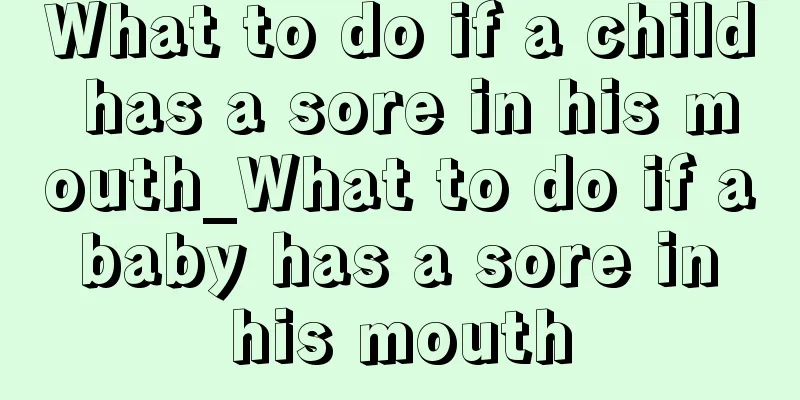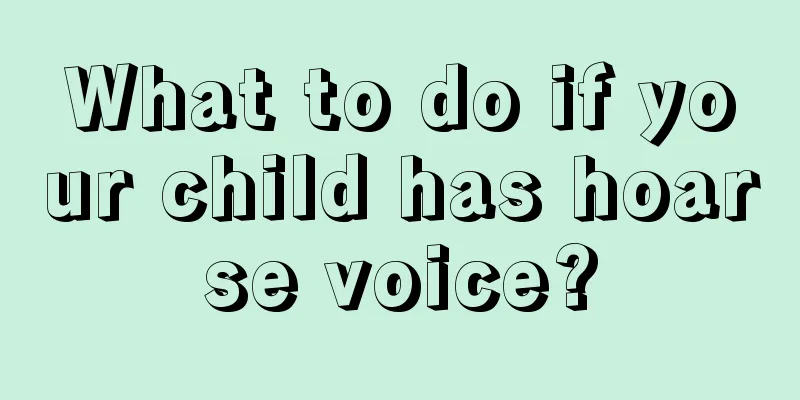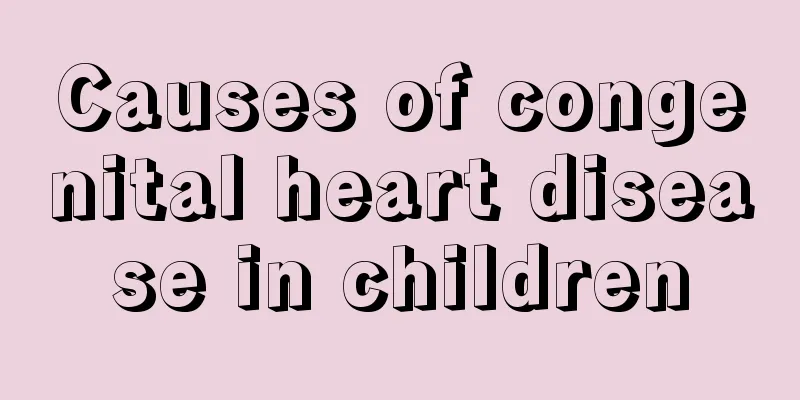Injections to boost lung function in premature infants

|
For premature babies, the respiratory system is not fully developed, which has a great impact on the child and can easily lead to breathing difficulties. Severe cases can lead to respiratory distress and even symptoms such as sleep apnea. At this time, the doctor will give the child a ripening injection based on the child's specific situation. This is a relatively important method to promote the development of the child's cardiopulmonary function. Of course, this is only an auxiliary method, and ultimately the child's own body still needs to develop well. Injections to boost lung function in premature infants Ripening injection is the main means of treating cardiopulmonary development and resuscitation in premature babies. It should be included in almost all premature baby care, because some premature babies are severely premature and their cardiopulmonary functions are not fully developed. Therefore, in order to breathe independently, the baby must promote the maturity of the heart and lungs as soon as possible after birth. It is difficult to maintain independent breathing for long and can only be maintained by a ventilator. However, in the end, the heart and lungs still need to develop and breathe independently. Six common complications of premature babies 1. Infection problem Premature babies have an incompletely developed immune system and are less able to fight viruses, making them very susceptible to infection. Once infected, they can easily develop sepsis or even meningitis, so special attention is required. 2. Cardiovascular disease If the premature baby's lung problems gradually improve, because the ductus arteriosus has not yet closed, excess blood will flow from the aorta to the lungs through the ductus arteriosus, causing heart failure and worsening lung function. 3. Respiratory diseases Because premature babies' lungs are underdeveloped, they may suffer from breathing difficulties or even respiratory failure. Some extremely low birth weight babies may also experience respiratory distress syndrome, with symptoms such as rapid breathing and cyanosis. 4. Gastrointestinal diseases Premature babies are prone to poor nutrient absorption, so it is best to feed them with breast milk; even if formula milk has to be used as a substitute, it is best to adopt a small amount of gradual feeding method. In addition, a very small number of premature babies will develop necrotizing enterocolitis, which requires special treatment. 5. Retinopathy Premature birth may hinder the normal development of retinal neovascularization, resulting in poor eye development and a greater susceptibility to problems such as myopia. Children should be followed up for examination by a pediatric ophthalmologist. 6. Periventricular and intraventricular hemorrhage Because the ventricular structure of premature infants is immature and the vascular structure is quite fragile, it is easy for them to rupture and bleed due to increased intracranial pressure. It can generally be divided into four levels. If the bleeding is minor and does not cause ventricular enlargement, it will most likely be absorbed by the brain itself. However, if massive bleeding causes the ventricles to expand or spread to brain tissue, it may affect neurological function, causing delayed motor development or behavioral disorders. A brain ultrasound should be performed after birth, and if any problems are found, regular follow-up examinations are required. |
<<: Developmental standards for premature infants at 34 weeks
>>: Premature babies have delayed brain development
Recommend
Warts on children's hands
Warts are a contagious disease and can occur in a...
What should I do if my baby only drinks milk from one side?
Babies are quite dependent on breast milk, which ...
What's wrong with a three-month-old baby who frequently retches?
The baby's health is very prone to problems b...
Measuring the temperature of newborn babies
Every baby needs careful care and attention after...
What are the solutions for children’s cough and diarrhea?
Children often have symptoms of coughing. This is...
The baby's temperature is less than 36 degrees after the fever injection
When the baby has a high fever, he needs to be gi...
How to treat a 17 month old child’s fever?
Nowadays, any topic about baby's illness will...
What causes newborn babies to sleep restlessly?
Many mothers will find that newborn babies have t...
How to prevent angular cheilitis in children
Children are a group of people who are prone to a...
Reasons why children have trouble sleeping
Children's physical health is something that ...
Why does my child cry and sleep restlessly at night?
Children's daily activities should be taken s...
What are the symptoms of high lead levels in children?
If the lead content in children's bodies exce...
Does your child have dandruff on his head?
Many people think that only adults have dandruff,...
What causes stomach pain in children?
Stomach pain is a non-specific symptom that requi...
Can a nine-month-old baby drink soy milk?
If there is a baby at home, then the baby's e...









